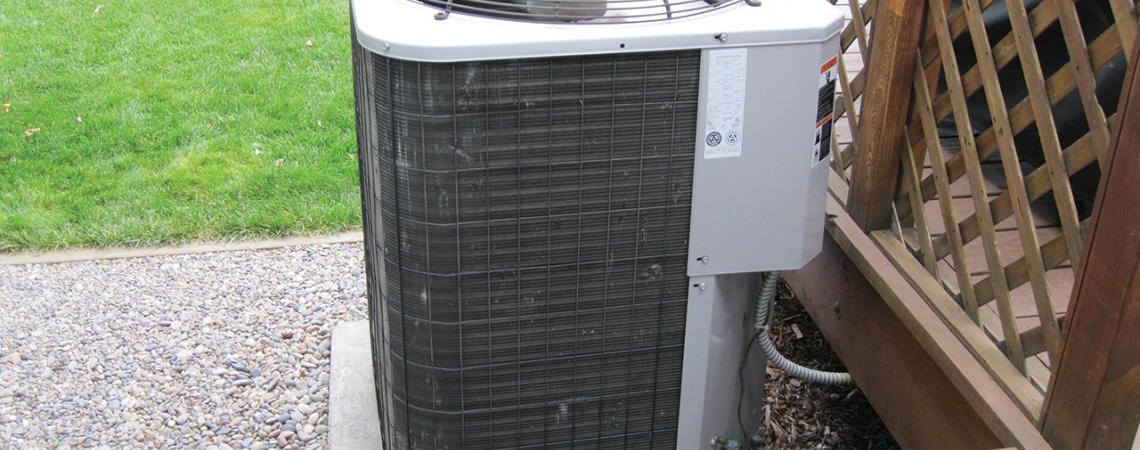Heat pumps generally are split systems, with the condenser situated outside the home.
For most of us, heating and cooling accounts for the largest part of our household energy use. For someone wanting to replace a furnace system that runs on propane or fuel oil, an electric air-source heat pump could be a good alternative. A heat pump is also a cost-effective alternative to electric furnaces, baseboard heaters, and wall units.
How heat pumps work
In the summer, an air-source heat pump acts as an air conditioner (AC) that draws heat from your home’s air and transfers it outside. In the winter, the system’s direction is reversed, so that heat is pulled from the outside air and moved into your home.
The heat pump has two major components: the condenser (also called the compressor) that circulates refrigerant through the system; and an air handler that distributes the conditioned air. Most heat pumps are split systems, with the condenser located outside and the air handler inside. A packaged system contains both components in one unit that is placed outside your home.
In the past, heat pumps weren’t efficient enough to work in colder climates. In recent years, however, technology has advanced to make them viable even in climates with long periods of sub-freezing temperature.
If an old furnace has an AC attached, replacing both the heating and cooling system with the all-in-one solution of a heat pump might produce significant cost savings. For someone currently cooling with window units or an older central AC, moving to an air-source heat pump could reduce summer energy bills.
Heat pumps not only reduce energy costs, they can also eliminate the risk of carbon monoxide poisoning and problems that can occur with on-site storage of propane or heating oil.
Selecting and installing
How much can a heat pump reduce energy costs? It depends upon the size and efficiency of the home, local energy prices, and local climate. Online calculators can help predict energy savings, but energy auditors can predict energy savings with greater precision, and they can offer advice on choosing a specific brand and size of the unit. More importantly, energy auditors can suggest other ways to improve comfort or reduce energy use, such as duct sealing or insulating the building envelope.
Pat Keegan writes for Collaborative Efficiency, an energy communications company.









